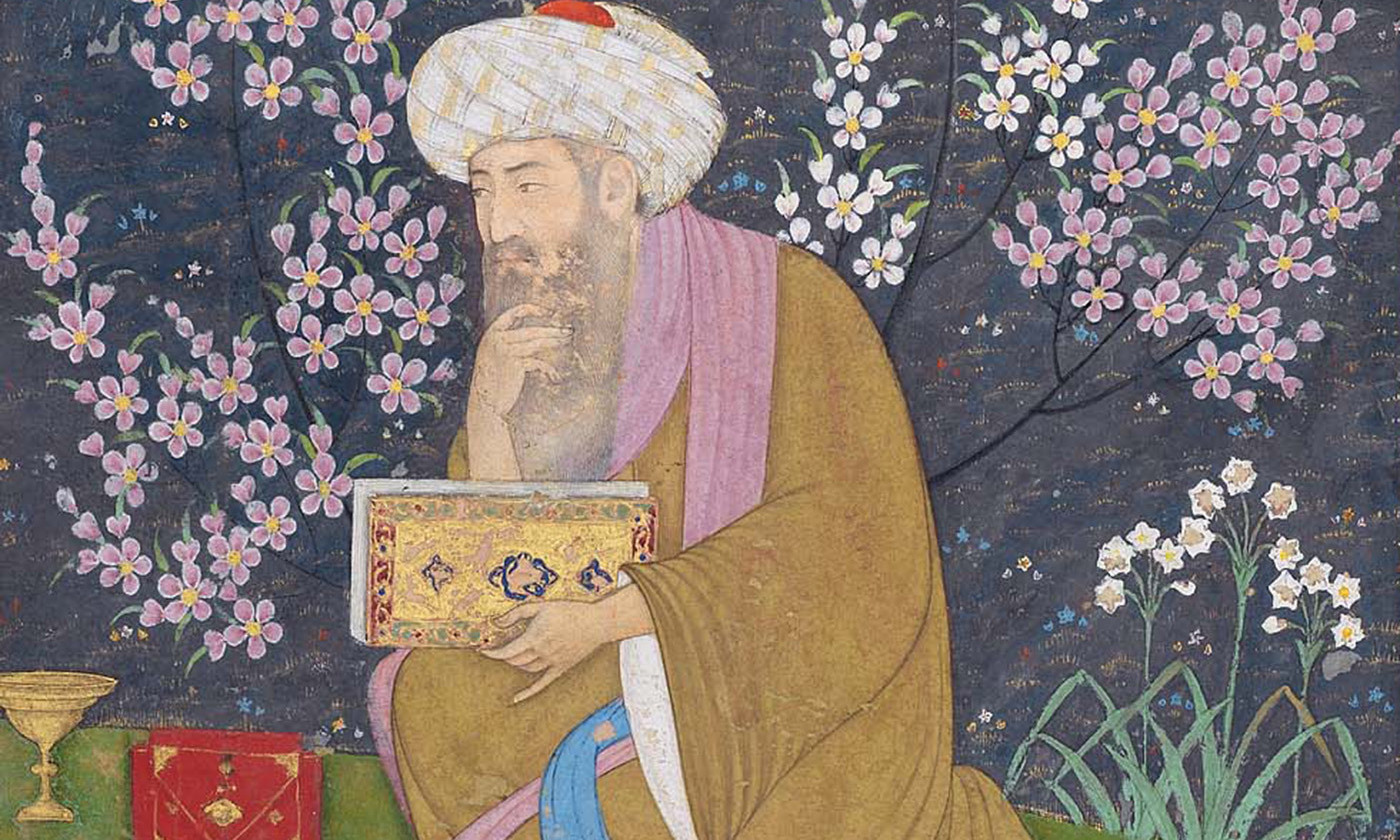Related Research Articles
ʿAlī ibn ʿĪsā al-Asṭurlābī was an Arab astronomer and geographer of the 9th century. He wrote a treatise on the astrolabe and was an opponent of astrology. During the reign of al-Ma'mun, and together with Khālid ibn ʿAbd al‐Malik al‐Marwarrūdhī, he participated in an expedition to the Plain of Sinjar to measure the length of a degree, or the circumference of the Earth. He measured the Earth's circumference, getting a result of 40,248 km.
In Islam, shirk is the sin of practicing idolatry or polytheism, i.e. the deification or worship of anyone or anything besides the singular God, i.e. Allah. Literally, it means ascribing or the establishment of "partners" placed beside God. It is the vice that is opposed to the virtue of Tawhid (monotheism). Those who practice shirk are termed mushrikun. Mushrikun are those who practice shirk, which literally means "association" and refers to accepting other gods and divinities alongside the god of the Muslims - Allah. In Islamic law shirk as a crime, can just be attributed to Muslims, since only a Muslim is legally responsible not to associate any partner to Allah.
Ābu Ḥanīfah Āḥmad ibn Dawūd Dīnawarī was an Islamic Golden Age polymath, astronomer, agriculturist, botanist, metallurgist, geographer, mathematician, and historian. He was born in the region of Dinawar, in Kermanshah in modern-day western Iran. He studied astronomy, mathematics and mechanics in Isfahan and philology and poetry in Kufa and Basra. He died in Dinawar. His most renowned contribution is Book of Plants, for which he is considered the founder of Arabic botany.

Abū ʿĪsā Muḥammad ibn ʿĪsā as-Sulamī aḍ-Ḍarīr al-Būghī at-Tirmidhī, often referred to as Imām al-Termezī/Tirmidhī, was a Persian Islamic scholar and collector of hadith who wrote al-Jami` as-Sahih, one of the six canonical hadith compilations in Sunni Islam. He also wrote Shama'il Muhammadiyah, a compilation of hadiths concerning the person and character of the Islamic prophet, Muhammad. At-Tirmidhi was also well versed in Arabic grammar, favoring the school of Kufa over Basra due to the former's preservation of Arabic poetry as a primary source.

Walī is an Arabic word whose literal meanings include "custodian", "protector", "helper", and "friend". In the vernacular, it is most commonly used by Muslims to indicate an Islamic saint, otherwise referred to by the more literal "friend of God". In the traditional Islamic understanding of saints, the saint is portrayed as someone "marked by [special] divine favor ... [and] holiness", and who is specifically "chosen by God and endowed with exceptional gifts, such as the ability to work miracles". The doctrine of saints was articulated by Islamic scholars very early on in Muslim history, and particular verses of the Quran and certain hadith were interpreted by early Muslim thinkers as "documentary evidence" of the existence of saints. Graves of saints around the Muslim world became centers of pilgrimage — especially after 1200 CE — for masses of Muslims seeking their barakah (blessing).

The Khawarij, Kharijites, or the ash-Shurah are members of a school of thought, that appeared in the first century of Islam during the First Fitna, the crisis of leadership after the death of Muhammad. It broke into revolt against the authority of the Caliph Ali after he agreed to arbitration with his rival, Muawiyah I, to decide the succession to the Caliphate following the Battle of Siffin (657). A Khariji later assassinated Ali, and for hundreds of years, the Khawarij were a source of insurrection against the Caliphate.

Al-ḥamdu lil-lāh or Alḥamdulillāh is an Arabic phrase meaning "praise be to God", sometimes translated as "thank God!". This phrase is called ḥamdala, and taḥmīd.

Ismail ibn Kathir was a highly influential historian, exegete and scholar during the Mamluk era in Syria. An expert on tafsir and faqīh (jurisprudence), he wrote several books, including a fourteen-volume universal history. Al-Hafiz Ibn Hajar Al-Asqalani said about him, “Ibn Kathir worked on the subject of the hadith in the texts (متون) and chains of narrators (رجال). He had a good memory; his books became popular during his lifetime, and people benefited from them after his death.”

Abū ʿAbd Allāh Muḥammad ibn Jābir ibn Sinān al-Raqqī al-Ḥarrānī aṣ-Ṣābiʾ al-Battānī was an Arab astronomer, astrologer, and mathematician. He introduced a number of trigonometric relations, and his Kitāb az-Zīj was frequently quoted by many medieval astronomers, including Copernicus.
Aḥmad b. Muḥammad b. Ibrāhīm Abu ’l-ʿAbbās S̲h̲ams al-Dīn al-Barmakī al-Irbilī al-S̲h̲āfiʿī was a Shafi'i Islamic scholar of the 13th century and is famous as the compiler of a great biographical dictionary of Arab scholars, Wafayāt al-Aʿyān wa-Anbāʾ Abnāʾ az-Zamān.
Abu Muhammad al-Ḥasan ibn Aḥmad ibn Yaqub al-Hamdani was an Arab Muslim geographer, chemist, poet, grammarian, historian, and astronomer, from the tribe of Banu Hamadan, western 'Amran/Yemen. He was one of the best representatives of Islamic culture during the last period of the Abbasid Caliphate.
Abū’l-Ḥasan ʻAlī ibn Ismāʻīl, known as Ibn Sīdah, or Ibn Sīdah'l-Mursī, (c.1007-1066), was a linguist, philologist and lexicographer of Classical Arabic from Andalusia. He compiled the encyclopedia al-Kitāb al-Mukhaṣṣaṣ (المخصص)(Book of Customs) and the Arabic language dictionary al-Muḥkam wa al-Muḥīt al-'Adhim (The Great and Comprehensive Arbiter". His contributions to the sciences of language, literature and logic were considerable.
Muhammad b. Ahmad b. Abi Sahl Abu Bakr al-Sarakhsi was a Persian jurist, or Islamic scholar of the Hanafi school. He was traditionally known as Shams al-A'imma.
ʿĀʾisha bint Aḥmad al-Qurṭubiyya, sometimes spelled Aysha or al-Qurtubiyya, was a tenth-century poet who was the daughter of Ibn Hazm. Most of her work was written in Arabic.

Abu’l-Qāsim Ismāʿīl ibn ʿAbbād ibn al-ʿAbbās, better known as Sahib ibn Abbad, also known as al-Sahib (الصاحب), was a Persian scholar and statesman, who served as the grand vizier of the Buyid rulers of Ray from 976 to 995.
Abū ‘Abd Allāh Nu‘aym bin Ḥammād al-Khuzā‘ī al-Marwazī was a traditionist from Marw al-Rudh and was later based in Egypt and Baghdad. He was nicknamed Farid or Faradi due to his reputation in the field of succession law (farā’iḍ).
As-Suwaydi was a medieval Arab physician from the Aws tribe, and a pupil of Ibn al-Baytar. Active in Cairo and Damascus, he compiled three works: a treatise on plant names, a treatise on the medical use of stones, and a book of medical recipes and procedures (Tadhkirah). As-Suwaydi's Tadhkirah was epitomized by Shaʿrānī in the 16th century.
Qutayla ukht al-Nadr was a seventh-century CE Arab woman of the Quraysh tribe, noted as one of the earliest attested Arabic-language poets on account of her famous elegy for Nadr ibn al-Harith.
ʿAnāq bint Ādam is, in some varieties of Islamic mythology, a daughter of Adam and Eve, sometimes even their first child. She is portrayed as evil.
Al Rawandiyya, Rawandians, or Ravendians is a term referring to a minority sect of Shi'i origin that originated in Khorasan during the Abbasid rule. The term was later expanded to include the entire Abbasid Shi'a community. The etymology is said to derive from Al-Kasim ibn Rawand or from Abu'l Abbas al-Rawandi, but little is known about these individuals. Other sources claim that the name is derived from Abd Allah al-Rawandi. Accounts by later historians and heresiographers claim that the Rawandiyya held numerous doctrines, some of which suggest belief in metempsychosis and divine incarnation, contrary to mainstream Shi'a doctrines.
References
- ↑ Frye, ed. by R.N. (1975). The Cambridge history of Iran (Repr. ed.). London: Cambridge U.P. p. 469. ISBN 978-0-521-20093-6.CS1 maint: Extra text: authors list (link)
- ↑ A. Rippin, “al-T̲h̲aʿlabī”, in Encyclopaedia of Islam, Second Edition, edited by: P. Bearman, Th. Bianquis, C.E. Bosworth, E. van Donzel, W.P. Heinrichs. Consulted online on 30 September 2018. doi : 10.1163/1573-3912_islam_SIM_7517, ISBN 9789004161214.
- ↑ A. Rippin, “al-T̲h̲aʿlabī”, in Encyclopædia of Islam, ed. by P. J. Bearman and others, 2nd edn, 12 vols (Leiden: Brill, 1960–2005), http://dx.doi.org10.1163/1573-3912_islam_SIM_7517.
| This article about an Islamic scholar is a stub. You can help Wikipedia by expanding it. |